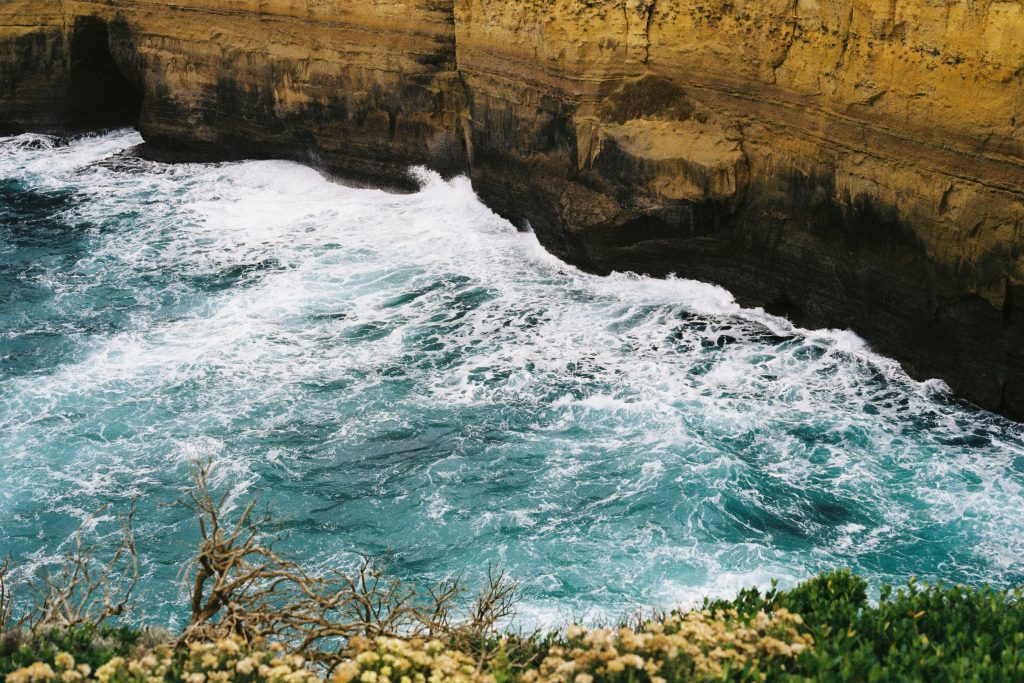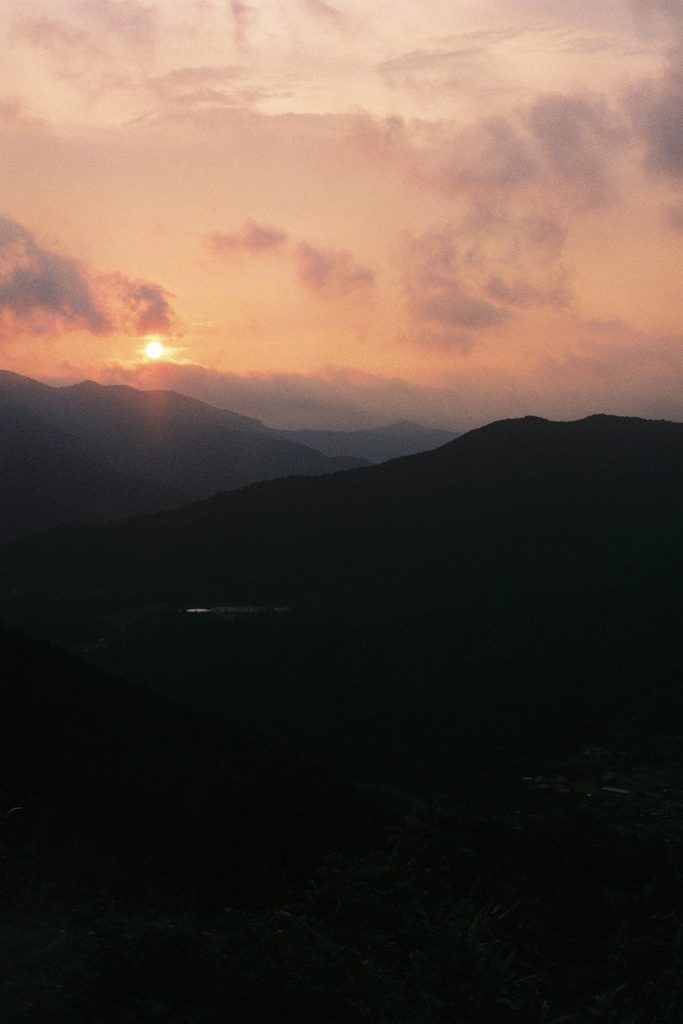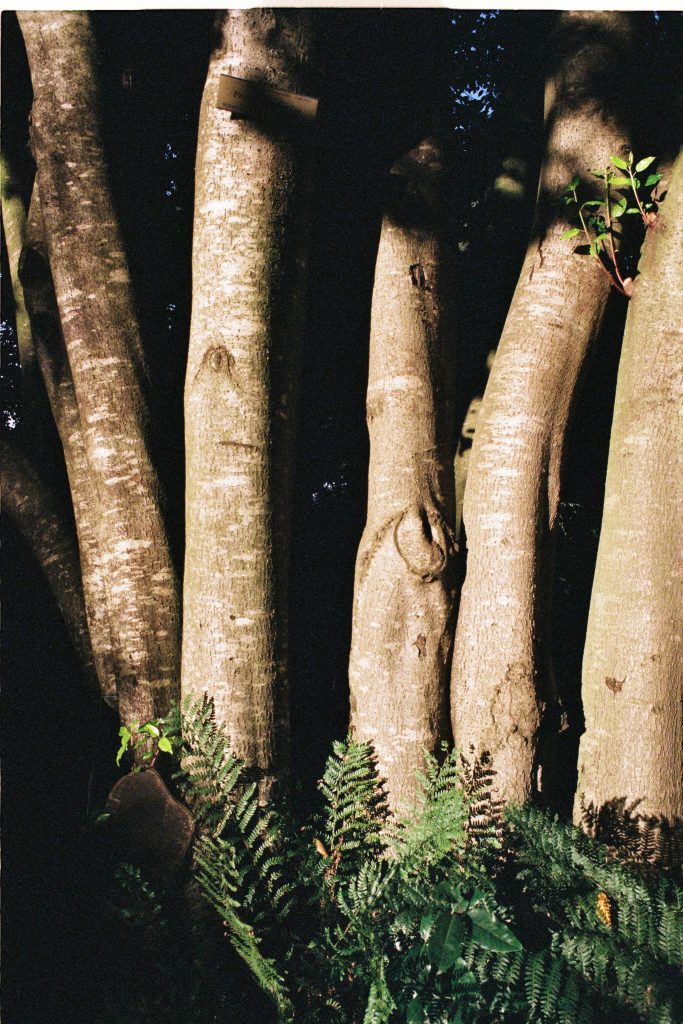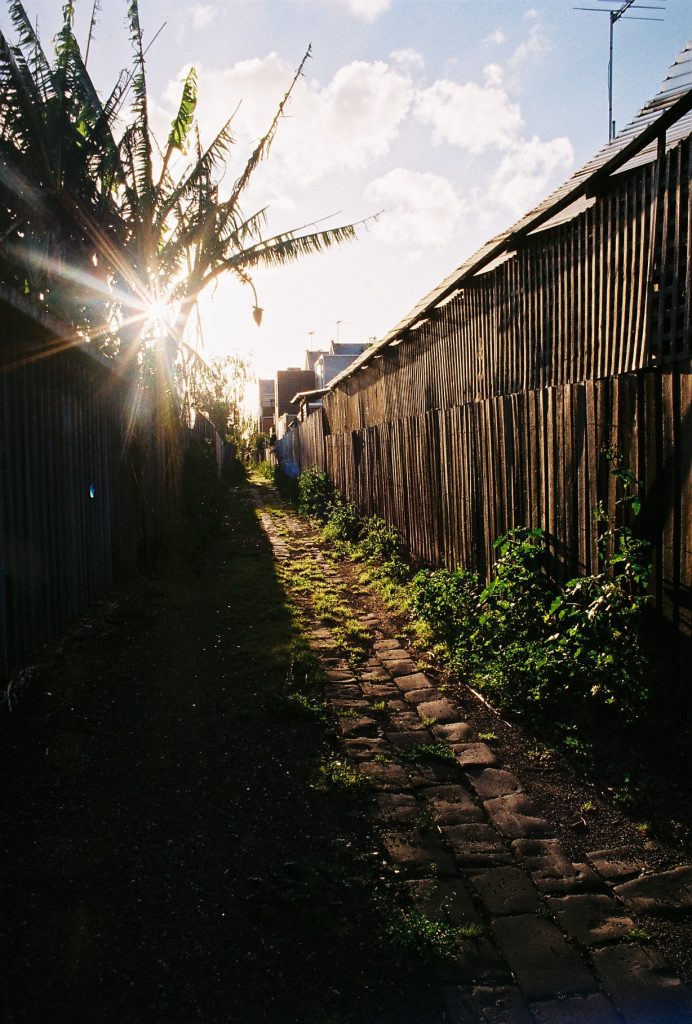
Lena
As a human in the time of coronavirus, I feel frazzled.
The sand constantly shifting beneath my feet– which as a practitioner I recognise as impermanence – is made less subtle and more gross at this time. There is a constant flow of new information which I’m forced to collate and adapt my behaviour. What is not allowed today? Going to the hairdresser? Sitting on a park bench? Seeing my friends? Not only do I have to monitor my behaviour in a way that I never had to before (which I guess could be an awareness practice, if I wasn’t so frazzled), there’s also just common sense and my own personal compass. What is the best way to manage in this new world, to be there for myself, my children and my friends? How does that align with the new rules? How can I be there for others at this time? And also a kind of grief in there too, the death of my ‘old life’, anxiety for the future, and uncertainty of not knowing when or how this will end and where we will be when it’s over. This is my mental backdrop at the time of a pandemic.
I know from experience that when I’m frazzled and overwhelmed, my mental habit is dissociation. It’s my survival mechanism kicking in. The practitioner in me knows that I don’t need to dissociate because there’s no innate inner me that needs to be protected from pain, but habits are habits. This habit seeps into my practice. It makes my practice akin to having a warm bath or going for a walk – a nice thing to do to give myself a little break. When it overcomes my practice, I sit down to concentrate on my breath, and I go empty. No thoughts, no feelings, nothing. It feels kind of nice – like a little break from my monkey mind – but after years of doing this and only recently becoming aware of it, I see that there are still feelings there below the surface, I’m just not letting them bubble up to allow me to see them for what they are.
So this is what it’s like for me being a practitioner in the time of a pandemic. Habits kicking in overdrive in response to the intense emotional landscape. A chance to catch the habits, if I can. Watch them if I can. Build that awareness and use it as my practice, even if it means just watching the habits kick in over and over again.
Working with what I’ve got, where I’m at.
Kathleen
Anxiety is an old friend. In the time of coronavirus, it went into overdrive as the lockdown stepped up. Anxiety always needs an object and there were many to choose from. Work and money and the elusive but seemingly tangible idea of “the future” took centre stage. Anxiety also likes to deal in the details. There was no trouble in finding many specifics to ruminate over, enforcing a familiar anxious cycle. However, since we are in a situation with no definitive end point, I found I began to ask myself if I seriously thought I could or should, maintain this level of worry and thinking? What would be the end point of that? Was I in danger of having the effort to maintain anxiety become my “full time job” in the time of coronavirus? What a waste of precious time that would be!
The shocking global impact of the situation remains a heart-wrenching wake-up reminder of the precariousness of our human situation within which the particulars of my own situation were (are) always put into perspective. This was a human situation and so many people were greatly suffering. How could I be of help in any way, when absorbed in and by my own situation? However, I also found that engaging with the news cycle was a potential danger zone for many forms of distractions that too easily became absorptions. Whether captured by the frivolous or outraged by the “outrageous”, there were many places to “hang out” in dullness, anger or judgement, for example. Is this how I wanted to use my time? How was I using my time meaningfully in the time of coronavirus?
So here I am. Keeping these questions alive.

Annie
Lockdown has allowed me to notice that I usually rely on the imperative of daily necessities – commuting to work, seeing friends, schlepping to the library to study, the thousands of little errands that require stepping over the threshold and into the world – to drive myself and create the sense of something happening. In normal life, it has sometimes felt like I don’t really need to generate anything myself to build the day’s momentum; the whole process almost seems to happen without any effort from me at all, as though it’s been scheduled by some ghostly secretary. Tasks and events just appear, people get in touch, the need to buy or read or plan something becomes apparent. If this process carries on without interruption (which it inevitably doesn’t), everything goes so smoothly that it allows me to avoid any enquiry into the actual source of my own motivation. There’s a kind of relief in the delicate balance of this arrangement, an arrangement that, if I don’t look too closely, I can call ‘having a life’.
Now there’s nowhere to commute. The libraries are shut, my friends are a bit fainter on my laptop screen, tasks line up silently in my inbox. My secretary has gone quiet. There is nothing tugging me out into the world. I could lie still under the weight of my heavy brown doona all day and there would be no immediate consequence for me. I’m left looking straight at myself, wondering where my energy has gone. What was it that used to pull me into the world? What do I do if it’s gone?
What has moved in instead is something like what Kathleen called “hanging out in dullness.” It’s a bit like fatigue, and a bit like boredom, but there are different edges to this feeling – there’s a way it can be dreamy and pleasurable, and there’s a way it can be dark and cynical. For me, there’s a sullen quality to it as well, a refusal to look at something clearly – I don’t really know what.
I was lucky enough to be reading The Future is Open, a collection of Chögyam Trungpa’s teachings on karma, when the coronavirus threat upscaled and we were confined to our homes. “The birth of karma,” Chögyam Trungpa writes in that book, “is continuously trying to keep extremely busy … there is a fear of being idle.” What results from this is a confusion of different levels of constant and frantic activity, “trying to entertain oneself with panic.” The secondary strategy, accompanying the panic, is to “develop this numbness so that, if you touch a sensitive area, you don’t have to get into it and you don’t hurt yourself.” (p 58)
The only way I have of developing an understanding of panic and numbness is through the half hour of shamatha that I do every day (although it’s only since lockdown that I was frightened into establishing a stable and secure daily practice). This involves sitting down, continuing to slip away and then catch up, forgetting and remembering, hanging out where my eyes rest in front of me: the patch of wall, ox blood red, that occupies the space between the jade Buddha, seated on a little low table and small enough to fit in the palm of my hand, and the framed image of the life of Buddha that hangs on the wall.
Garry
In the beginning before it really hit Australia, I, like many around me at the time, was downplaying the significance of the Corona Virus and felt it was no more than a mild flu about to hit and all else was just hype. Then reality started to unfold, as China was locked out, borders closed and restrictions kicked in, and Italy was in the grips of incredible pain, suffering and death.
Death is not distant in my mind and as a so-called practitioner, I am constantly aware of its inevitability; life is like a bubble. This seems to have become my practice; impermanence and death, but not with a morbid nihilistic sense, but an opportunity to evolve, harmonise with and fully appreciate this Wonderful World and diversity of people and Universe we have been born from.
But this manifestation of what one could consider the Grim Reaper of our time, about to unleash death and suffering to the World seems different. Is this Mother Nature giving us a nudge to sought our bad behaviour out now, or else ? Climate change has been ignored, but in this short period of shutdown has allowed the Natural World to reveal how it can heal itself in a short time and we don’t need to do anything, other than just stop interfering.

I have made a point of heading out each day to the supermarket to touch base with life as we now know it, with no ground to rely on, other than this ever changing worldwide pandemic state of mind. Never before have I felt so connected with those around me as we all seem to wander aimlessly gathering our essential items and a breath of air and sunshine outside of our cells, and the desire for social interaction, at a safe distance.
There is such pure awareness of the current moment, perhaps each one of us waiting for our turn to experience what others in great numbers are experiencing somewhere else in other parts of the World and in small numbers close to home. But more so it would seem, this virus has focused on our elders in society, which brought great dismay to me as we sent the message to them to lock themselves away and stay there until we tell you all to come out again and that it’s for your own benefit . I felt such shame and horror that we could not do better, but then realised, they needed protecting from us.
My mind has flickered from one thing to another and the best practice as it seems, is to just sit and let the thoughts come and let the thoughts go as best I can.
Of course I have been a backseat driver as I constantly watch the news and politicians on TV, but I have learned so much from some of those in charge and admired their mindfulness and awareness and ability to focus on the welfare of others. There are times I felt I knew better, however, the Buddhist approach of touching base with our inherent Bodhicitta seems to have rescued me along the way, giving rise to some basic sanity, with the realisation, we actually are all in this together and we are doing the best we can to care for others and that our Government and all politicians regardless of political persuasion, have for the first time, united as one to implement policies to minimise panic, provide a financial lifeboat and ensure the health and safety of as many as possible.
Overpriced hand sanitiser, hand washing, should I wear or should I not wear a face mask and no toilet paper on supermarket shelves are the visualisations that will be with me for the rest of my life.
The Bodhisattvas of this time have revealed themselves in the form of Health workers, public facilities cleaners, supermarket staff, retail staff etc. who to me are the bravest of Practitioners of our time, working in the frontline to keep essential services available for the rest of us. Focusing on this has brought realisation that just melted away any ridiculous conceptual baggage festering within and opened my Heart to the suffering of others around me.
This time has been a real letting go of conventional logic and dualistic ideology and there has been a shift towards much more of an appreciation for others, our Natural World and life itself.
Sue
Integrating dharma and the impact of COVID-19 as a community Palliative Care nurse.
Her husband opened the door, “I think she is dead.” I found her in bed, unable to speak or move. Today’s clothes were neatly folded. She failed the simple tests that would have shown she didn’t have a stroke. I spoke to her about what I thought had happened, and that these days a stroke could potentially be reversed or decreased in severity, and to blink if she wanted me to call an ambulance and to have full treatment. She gave a clear blink.
Mrs Smith (not her real name) had advanced breast cancer, was receiving chemotherapy and had a troubled home relationship with an alcoholic husband. I had telephoned earlier to ask the routine COVID-19 questions, before my visit. After giving the all clear, she had responded, “I’m not dressed yet, it will just take me five minutes.”
Her husband’s cognitive deficit showed. Instead of bringing a bag to pack his wife’s belongings, he brought me a small plastic bag. He cried, “What am I supposed to do.” EPC will support him to go to an Aged Care Facility.
Mrs Smith was taken into the MICA ambulance. Without the COVID-19 questions, I wouldn’t have had a timeline for the stroke, or known that Mrs Smith was lucid before my arrival 30 minutes later. I also don’t know if her husband had the cognitive ability to call for help. She died the next day.
2nd visit
Mr Jones (not his real name) was elderly, had unclear disease, with no previous diagnosis or treatment, on a background of Dementia. His GP made the referral, fearful that he might have a catastrophic bleed.
Mr Jones’ rapid functional decline and intense agitation when being touched became well managed with an Action Plan I developed with Mrs Jones and her two sons. Equipment was put in place, they knew how to use the palliative medications, and I demonstrated how to communicate and provide physical care without exacerbating his agitation.
After a few days, Mrs Jones mentioned that they had returned from a Ruby Princess cruise on March 8th. and she had been to her GP with a respiratory illness. She refused to allow a pathology swab to be taken from Mr Jones when he died. I went for a COVID-19 test as a precaution, which thankfully came back as negative.
I visit up to five clients in a day with an overnight on-call shift each week, in this nurse-led organisation, and each door opens to a unique situation, to be assessed holistically.
How do I integrate the dharma during the pandemic? The same way I do at other times. I start the day with the pranayama exercises developed by Traleg Rinpoche and Traleg Khandro. I do aspirations, and dedicate the merit of all, with the idea that those I make contact with are also establishing a karmic connection with Traleg Rinpoche, because I am his student. I remember Traleg Rinpoche’s advice about presenting oneself well, to encourage a positive response toward the dharma—in this case, it’s my presentation to my clients to help establish rapport.
Walking up the EPC stairwell, I say the Padmasambhava mantra and imagine him at the top of the stairs, sending light to the body, speech and mind of myself, and all beings. I know that I hold the teachings, am blessed and am not alone. The day starts fresh and open to whatever it may present. I am a work in progress when it comes to not trying to push away feelings of being overwhelmed. At night time if I can’t sleep, concerned about clients, I place Padmasambhava above their home. Often, when checking the next day, their symptoms or issues were completely settled.”

Marisha
Irwin and I lead a quiet life. So when social isolation came in, it didn’t change our routines too much. I usually drive to the Zen temple once a week and then we attend zazen on another evening. We visit family and friends, but not as much as when we were younger. The biggest, most significant change was we slotted into the vulnerable category in relation to the virus. We are both in our elderly stage of life and have chronic health issues. My mind goes to thoughts that I might die if I contact the virus. Then thoughts go to if this is so, what is important to me right now? My practice and my Buddhist faith kept coming up as most important, time and time again.
My sitting practice increased from daily to twice daily and, as much as I don’t enjoy using computers, I made an effort to use Zoom as a communication platform. I found listening to Buddhist lectures from various teachers very supportive. The E-Vam community held an online retreat for four days. It was excellent. I was concerned with how Jikishoan would cope, due to its older community, with many members in their sixties or older. It gave me enormous hope that Jikishoan could do it too.
Jikishoan stopped programs for about two weeks. Ekai Korematsu Roshi immediately went into preparation for an online Zen program. It was overwhelming, but exciting at the same time. Seeing how E-Vam organised their retreat gave me confidence we could do a zazen program online. I attended meetings in the preparation phase, but I was still very emotional due to the sudden death of my sister’s son. I was not able to participate as much as I wanted to help establish the program.
Attending the Chenrezig pujas at E-Vam helped me deal with my grief. I became very sensitive to the grief experienced by families who had their own members die due to the Covid virus. I felt deeply for them. At that time I also practised visualisations, mantras and pujas for the protection of all sentient beings and continue to do so.
Ekai Osho has currently developed a home retreat program and all other programs have been adapted into an online format. I have currently committed to an online three month home retreat Ango program. It is very exciting to have a plan schedule integrated into everyday activities. We cleaned our house and meditation room in preparation for the practice. I feel my house is shining and ready.
During this virus crisis, it is so important for us to have a routine and not forget our practice, which can support us. The lockdown has been a welcome blessing for us, helping us get organised and plan our life in a structured spiritual way. I keep contact with family and friends by phone and go out only for shopping and exercise. Washing hands and disinfecting has increased and become part of our routine. I will accept whatever comes my way, like it or not. But I am calm, at peace and have stability even with this huge change and threat in our lives.
David
I look back, not able to place in time the start of the lockdown. I do remember that the autumn leaves have been at their finest at some point, now less so. Where my sense of time is sketchy, I have noticed with greater clarity, that my interactions with the local shop keepers in the neighbourhood are developing. What shops would stay open, who would run the till and counters, how would it all be managed?
I realised how grateful I am for the shops that stayed open, like spotting an old friend who had become distant from one’s life. The shop clerks, even “clerks” seems too formal, and “friends” doesn’t seem right, the people running the shops. The people seem more connected to me and me to them. If I felt a bit spooked, their eyes reassured me that they were here and knew how to handle things. If they looked rattled. “How are you doing?” from me elicited a nod to the difficulties they were facing and their burden of worry and concern. The store, their jobs, their health, our health; all of these things.
Not much is really said, a lot more passes from eye to eye like an osmotic moment between the shoppers and those filling the shelves or running the till. Most of the time the gentle reminders to sanitise our hands at the door are appreciated by us all, keeping everyone safe. The shop people seemed to have developed an increased awareness of all of our shopping habits, and I find myself exchanging glances with those who know, when we notice the activities of those who have forgotten, or never bothered to learn the new rules.
I continue to thank restaurateurs and shop people who have kept their doors open for all of us, “thanks for your service” now has a different ring. We are joined together in an appreciation for each other’s presence. In short, although the virus drove us indoors, this emerging from isolation has helped us to see the importance of people we may have once considered strangers.

Photos by Annelise Roberts
